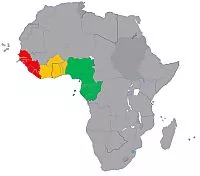South Africa's opposition parties have banded together to pressure President Cyril Ramaphosa over a corruption scandal – and an impeachment process is now underway. Even so, the president's most serious political threats emanate from opponents in his own party, endangering his campaign for re-election as party president in December.
SIGNIFICANCE – THREATS
On 5 August, Speaker Nosiviwe Mapisa-Nqakula approved a motion by the African Transformation Movement (ATM) to impeach President Ramaphosa according to Section 89 of the constitution.
The ATM and other opposition parties are attempting to remove Ramaphosa over the Phala Phala scandal, which began in May when former intelligence chief Arthur Fraser accused Ramaphosa of covering up a burglary on his farm in 2020. Fraser alleged that burglars stole USD4 million that was hidden in furniture on the president's farm, and that he instructed government officials to recover the loot and conceal the incident 1.
Next steps in impeachment process
- Parliament appoints an independent panel to investigate whether Ramaphosa is guilty of serious misconduct and unfit to continue in office. The panel must reach a verdict in 30 days.
- If impeachment is recommended, a special parliamentary committee is formed to evaluate the charges against the president. The committee further resolves whether the president should be removed.
- If the committee resolves to remove the president, all members of the National Assembly vote on the subject and the president is immediately removed if at least two-thirds support the resolution.
We expect the impeachment process to be concluded before the ruling African National Congress (ANC) votes in new leaders in December. In that contest, Ramaphosa's re-election bid as ANC president will likely be opposed by rivals such as his ex-health minister Zweli Mkhize and current tourism minister Lindiwe Sisulu. However, even before then, the president risks being sidelined by the party's own rule that any member who is charged for a crime must step aside – that is if the current NPA investigation results in a prosecution.
The ongoing probe by the Public Protector will also have a significant impact on the president's re-election bid. An adverse report would be damaging and would force him to increasingly lean on allies who lead the party in the provinces. But unlike his predecessor Jacob Zuma, who managed to win a second term in 2012 despite corruption allegations, Ramaphosa is struggling to rally party support in key provinces such as KwaZulu-Natal. His ally, Sihle Zikalala, resigned as KwaZulu-Natal premier last week after losing re-election as provincial chair.
OUTLOOK – POLITICAL CAPITAL
The ANC has approx. 58% of seats in the National Assembly and will block opposition attempts to unseat Ramaphosa via an impeachment or no-confidence vote. Our baseline scenario remains that Ramaphosa will survive the Phala Phala scandal in the short term (See: South Africa's president faces own scandal as state capture probe ends), but his declining credibility and political capital indicate that a re-election in December is far from certain.
This dynamic will continue to hinder policy execution, most recently in relation to a fresh batch of proposals that Ramaphosa laid out last month to address the country's energy load-shedding crisis – alongside a proposed social compact to create jobs and bolster the economy, which rebounded to pre-Covid levels in the first quarter of this year. The social compact has not been released since Ramaphosa promised to do so within 100 days in February.
Footnote
1. The National Prosecuting Authority (NPA) has since launched a criminal investigation into the president. He is also currently being probed by the Public Protector's office.
The content of this article is intended to provide a general guide to the subject matter. Specialist advice should be sought about your specific circumstances.


